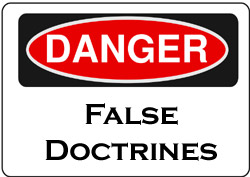Bible Authenticity Is Now On Delphi Forums
All are welcome to visit Bible Authenticity on Delphi Forums., and to make respectful. appropriate comments.
All are welcome to visit Bible Authenticity on Delphi Forums., and to make respectful. appropriate comments.
“Always be ready to give an explanation to anyone who asks you for a reason for your hope, but do it with gentleness and reverence”—1 Peter 3:15 NAB
After each article on this website, there is a place to “Leave a Reply.” We invite all sincere readers who feel inclined to do so, even if you disagree with something in the article.
This website is a place where issues related to the Bible can be openly and sincerely discussed with reason and good attitudes, but is not a place for such things as advertisements, promotions, hostility, bad language or profanity, personal attacks, debate just for the sport of it, etc.

The short answer is, yes, we can understand Almighty God and his Word, the Bible! Does that mean that we can fully understand everything? No, we can’t. The Bible makes this very clear.
“How great is our God–beyond our understanding! The number of his years is past finding out”—Job 36:26 NIV
But the Bible does indeed indicate that understanding of what we need to know, how to act, how to be considered “righteous” by God, and be given the gift of eternal life, is entirely attainable.

Is there enough evidence to prove God’s existence? Atheists say, “No!”
“Since the creation of the world God’s invisible qualities — his eternal power and divine nature — have been clearly seen, being understood from what has been made, so that people are without excuse”—Romans 1:20 NIV
BIBLICAL CHRISTIANITY REQUIRES LESS FAITH TO BELIEVE IN THAN ATHEISM
While Christians are often derided for their seemingly “blind faith” in the Creator/God’s existence, the facts give powerful evidence the Biblical Creator/God is real.

“Without faith it is impossible to please God, because anyone who comes to him must believe that he exists and that he rewards those who earnestly seek him.” (Hebrews 11:6) So the first point is that one must believe that God exists, and becomes the rewarder of those sincerely seeking him.
“All Scripture is God-breathed and is useful for teaching, rebuking, correcting and training in righteousness, so that the servant of God may be thoroughly equipped for every good work.” (2 Timothy 3:16-17) The sincere Christian would believe the Bible (the 66 books from Genesis to Malachi) is the word of God.
“
God chose you as firstfruits to be saved through the sanctifying work of the Spirit and through belief in the truth.
“All Scripture is God-breathed and is useful for teaching, rebuking, correcting and training in righteousness, so that the servant of God may be thoroughly equipped for every good work.” (2 Tim 3:16-17) The Bible completely equips Christians because it is the only divinely inspired writing.
“Every word of God is flawless; he is a shield to those who take refuge in him. Do not add to his words, or he will rebuke you and prove you a liar.” (Prov 30:5-6) The Bible is perfect because it is God’s Word and does not need to be supplemented.

“I warn everyone who hears the words of the prophecy of this scroll: If anyone adds anything to them, God will add to that person the plagues described in this scroll. And if anyone takes words away from this scroll of prophecy, God will take away from that person any share in the tree of life and in the Holy City, which are described in this scroll.” (Rev 22:18-19) Adding to or subtracting anything from the Bible is condemned by God.
“Sanctify them by the truth; your word is truth.” (Jn 17:17)The Bible is God’s Word.
“Dear friends, although I was very eager to write to you about the salvation we share, I felt compelled to write and urge you to contend for the faith that was once for all entrusted to God’s holy people. ” (Jude 3) This body of truth, or faith, contained in the Bible was delivered once for all time, being completed by around 100 CE.
“Remember what the apostles of our Lord Jesus Christ foretold.” (Jude 17) The word of the apostles was authoritative. The New Testament was written by four apostles directly chosen by Jesus, namely, Matthew, John, Peter and Paul. Four other close associates of the apostles also wrote the New Testament.

“Draw up an account of the things that have been fulfilled among us, just as they were handed down to us by those who from the first were eyewitnesses.” (Luke 1:1,2 NIV) The Bible writer Luke based his accounts on eyewitness testimony.

Is the Bible reliable? Does it contain myths, or are the stories true? Did the writers simply write down stories they had heard from other people, or did they experience the things firsthand that they wrote about?
The Bible is not made up of cleverly devised fables or myths. “We did not follow cleverly devised myths when we known to you the power and coming of our Lord Jesus Christ” (2 Peter 1:16 NAB). Many of the Bible writers were actually eyewitnesses of their written accounts. “But we had been eyewitnesses of his majesty” (2 Peter 1:16 NAB; see also 1 Peter 5:1) Eyewitnesses also handed down their accounts to others who carefully researched these things. (Luke 1:1-3) Still others studied and pondered. (Ecclesiastes 12:9-10) But none came from human will. (2 Peter 1:21)
All scripture was inspired by God:
“All Scripture is God-breathed and is useful for teaching, rebuking, correcting and training in righteousness, so that the servant of God may be thoroughly equipped for every good work” (2 Timothy 3:16,17 NIV).
Each New Testament Bible book has certain statements of its main points, its core ideas. Church leaders generally assert that the Father is God, Jesus, the Son, is God, and the holy Spirit is God, and yet, they are just one God, not three Gods. They are said to be each eternal and equal in this “Godhead,” as they call it. If these ideas are true, we should see this clearly in the NT. Do we?